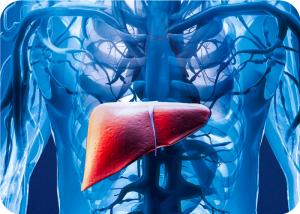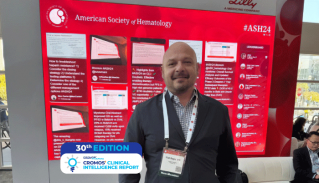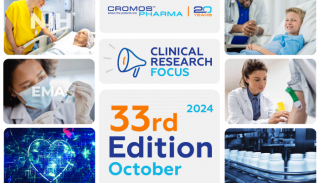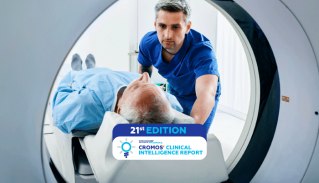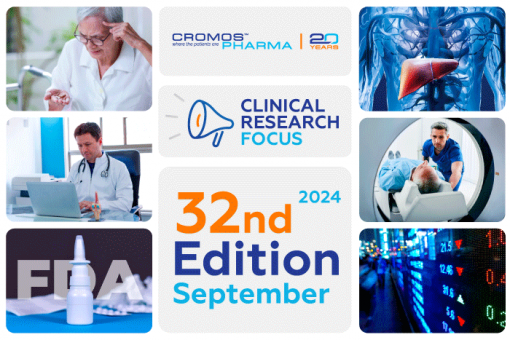
Clinical Research Focus. 32nd Edition
Poland: Europe’s New Hub for Clinical Research
Poland has rapidly become a top destination for biotechnology professionals, drawn by its dynamic setting conducive to conducting clinical trials. This growth is underpinned by the nation’s robust healthcare infrastructure, a highly skilled workforce, a supportive regulatory framework, and favorable economic conditions, all combining to create an ideal landscape for biotechnological advancements.
Please follow the link to learn more.
FDA Approves First Nasal Spray for Severe Allergic Reactions
The FDA has approved Neffy, the first epinephrine nasal spray for emergency treatment of life-threatening allergic reactions, including anaphylaxis, in adults and children over 66 pounds. This needle-free option could reduce treatment delays caused by fear of injections, offering a quick and effective response to severe allergic reactions.
Please follow the link to learn more.
Revolutionary HIV Breakthrough: Is Lenacapavir the Ultimate Game-Changer?
Scientists Develop Medication Offering 100% Protection Against HIV!
Prepare to rethink HIV prevention: researchers have achieved a monumental breakthrough with lenacapavir, a new twice-yearly injectable medication from Gilead Sciences, which demonstrated an astounding 100% efficacy rate in preventing HIV among cisgender women during Phase 3 trials. This revolutionary treatment surpasses the daily oral medications Truvada and Descovy, transforming the landscape of HIV prevention.
Please follow the link to learn more.
Novartis’ Leqvio Meets Primary Endpoint of LDL-C Reduction in Phase III Trial
Novartis’ Phase III clinical trial of Leqvio (inclisiran), a small interfering RNA (siRNA) therapy, successfully met its primary endpoints. The trial, which involved 350 patients, demonstrated a significant reduction in low-density lipoprotein cholesterol (LDL-C) compared to ezetimibe and placebo over a six-month period. This study marks a crucial step in the use of siRNA therapy for patients at low or moderate risk of atherosclerotic cardiovascular disease (ASCVD).
Please follow the link to learn more.
New Research Alert: Alarming Trends in Men’s Cancer Incidence & Projections to 2050
Men have long been at a higher risk of developing cancer, often due to lower engagement in preventive measures and health screenings. This lack of proactive health management has resulted in significantly higher morbidity and mortality rates for men compared to women. For example, in 2020, the cancer death rate among men was 43% higher than in women—a gap largely driven by smoking habits, with 32.6% of men smoking compared to just 6.5% of women.
Please follow the link to learn more.
Duality Biotherapeutics Initiates Hong Kong IPO to Fund Cancer Drug Trials
Duality Biotherapeutics is advancing to a Hong Kong IPO to finance trials of its novel cancer treatments, including those in collaboration with BioNTech. This move extends the IPO trend from the U.S. to Asia, with Duality seeking to advance a robust pipeline of antibody-drug conjugates. The funds will support clinical trials for their promising cancer therapies, aiming to address significant unmet medical needs.
Please follow the link to learn more.
Omny Health Launches Exclusive GLP-1 Data Resource
OMNY Health has introduced a dynamic GLP-1 network featuring data from over 600,000 patients to accelerate clinical research on conditions like diabetes and obesity. This network aims to improve patient outcomes by supplying life sciences and healthcare partners with comprehensive data, including patient demographics and social determinants of health. The initiative supports the development of AI-driven health tech tools and in-depth clinical studies, enhancing understanding and treatment strategies for chronic diseases.
Please follow the link to learn more.
Adaptive Brain Pacemaker Offers Hope for Parkinson’s Patients
A small NIH-funded study found that an adaptive deep brain stimulation (aDBS) device, which adjusts based on brain activity, improved Parkinson’s symptoms by 50% compared to traditional methods. This personalized approach could enhance symptom management and quality of life for patients, offering a more effective and tailored treatment option.
Please follow the link to learn more.
Alzheimer’s Drug Lecanemab: A Bittersweet Milestone
The newly approved Alzheimer’s drug, Lecanemab, offers a groundbreaking treatment that can slow cognitive decline in patients with early stages of the disease. However, its approval in Great Britain carries mixed feelings due to its limited indication for non-carriers or heterozygous carriers of the ApoE4 gene, and its high costs and intensive treatment demands have led to skepticism regarding its cost-effectiveness for NHS coverage.
Please follow the link to learn more.
Enhancing Liver Disease Trials with AI: Nature Medicine Study Highlights
A new study published in Nature Medicine showcases the development of an AI tool, AIM-MASH, designed to enhance the assessment of liver disease severity in clinical trials. This tool aims to improve the reliability of clinical trials by offering more consistent and precise histologic scoring, potentially leading to more effective treatments for liver diseases.
Please follow the link to learn more.









